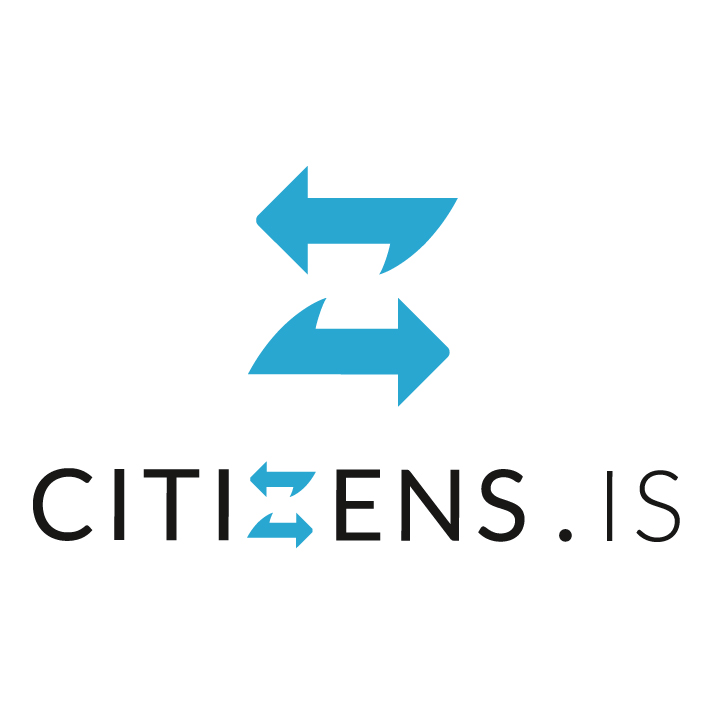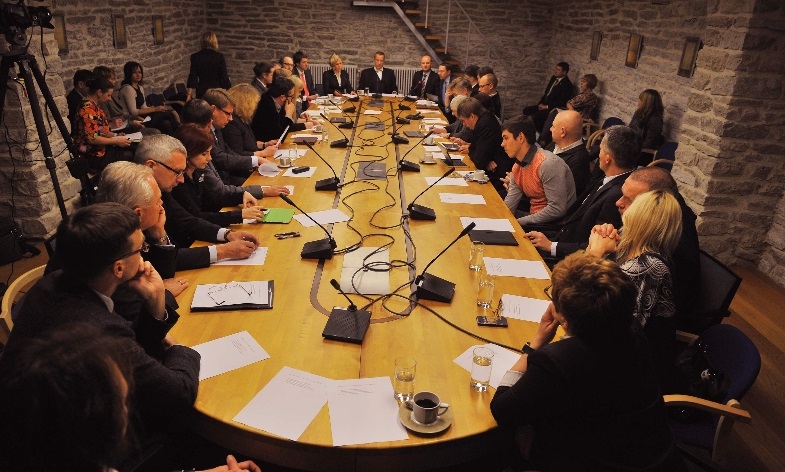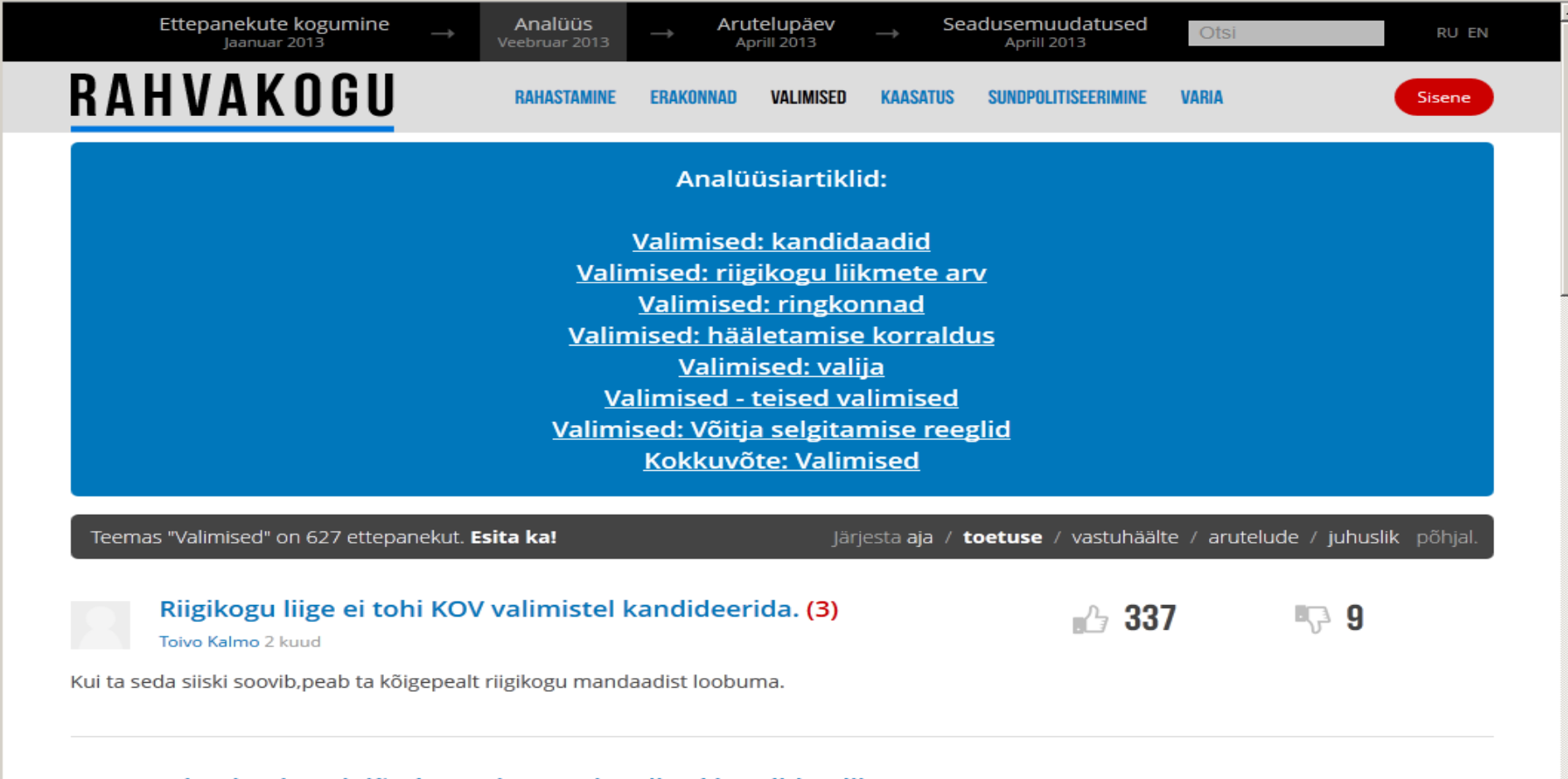Rahvakogu – People’s Assembly in Estonia
Rahvakogu – People’s Assembly in Estonia
After political scandals in Estonia in 2012, president Toomas Hendrik Ilves asked grassroots organisations to come up with ideas to improve the democratic framework in the country. They decided to crowd-source this reflection process using Your Priorities system.
The online platform People’s Assembly (Rahvakogu) was launched for crowd-sourcing ideas and proposals to amend Estonia’s electoral laws, political party law, and other issues related to the future of democracy in Estonia.
- Over 60.000 people visited the website and 3.000 people contributed in a process that lasted 14 weeks
- In 3 weeks from January 2013 the website received close to 2.000 proposals
- The top 15 ideas were presented to the Parliament
- 7 of the ideas have been adopted as Estonian laws, 3 unchanged and 4 modified or combined with other laws
- One of the 7 laws about citizens petitions has created a new law
As a result 7 of the 15 proposals emanating from this consultation were adopted into Estonian laws and when officially handing the proposals to the Riigikogu, president ToomasHendrik Ilves delivered an interesting speech in which he underlined the current challenges at stake when it comes to articulating representative and participatory democracy. He said:
“An efficient representative democracy works when the people’s discontent and proposals are taken into account in-between elections and when the citizen truly sees members of parliament as their representatives, not as members of a political party who belong either to the governing coalition or the opposition.”
“The people are made up of individuals. Our people, the same people upon whose shoulders Estonia rests, are clever and diverse. Only in a joint debate is it possible to establish which opinions are held in common and where differences remain. No one alone thinks or feels for everyone. […] Estonian society demands an open debate; it wants to be a real and substantial participator in this process.”



